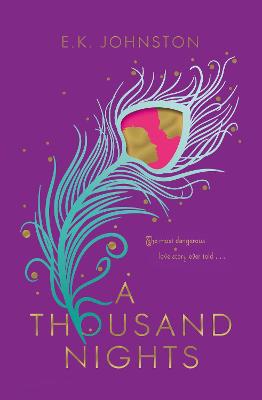Reviewed by e_rodz_leb on
Before you (and I!) get all confused, let me start by saying that most of the characters are nameless. Yes, you read it correctly. Lo-Melkhiin is the king that has killed 300 hundred wives thus far. Most of the characters are then Lo-Melkhiin’s “mother”, our protagonist becomes the “wife” or “Lady-bless”, and her family “my sister”, “my mother”, “my sister’s mother”, “my youngest brother”, you get the idea. Believe it or not, I was still intrigued by the notion and the story was not hard to follow.
“I love you,” I called out. The words were for everyone, for my mothers, and the words were only for my sister.
My sister was on her knees when they put me on the horse, her while liner browned by the sand and her hair falling forward across her face."
Lo-Melkhiin was crowned king very young. He’s a hunter and one day while hunting a lion, he came back changed. This is common knowledge and I think it was the accepted belief that he was “possessed” by something. However, he was an excellent king, the lands grew prosperous and most importantly, he was feared and the fact that he seemed to go through so many wives was conveniently overlooked. When Lo-Melkhiin comes to her village to select a wife, she calls attention to herself in order to save her sister’s life since she was the prettier of the two.
“My common wife,” he said at lenth… “You are not afraid of me. Tell me why.”
“There is no cause for fear,” I told him.
“You do not worry that I will call for your death, right in this room, if you do not please me?” he asked.
“I know you can and might,” I said. “The flood will come, fast and without warning, because the ground is not accustom to it. And therefore it is not worth fearing.”
Her sister, her mother and then it seems like the whole country starts praying for the new bride and that turned her into a live “smallgod” and it grant her some powers. This powers give her some extent of protection against Lo-Melkhiin, a clearer image of what goes on around her and also the power of having visions. In A Thousand Nights, she doesn’t make up a story to stay alive, rather, she talks about her people’s stories in an attempt to feel closer to all that she loves. This is not a story in which she falls in love with her husband, but neither does she cower in front of him. She’s brave, smart and resourceful.
“The pieces of the tale I knew came quickly to me, the ones shaped like my sister and the ones to which could be shaped. They flew about me, and I plucked them from the air.”
The pace is slow. I wasn’t bored, but this is not action packed thriller either. Most of the action happens at the end, when she returns home to attend her sister’s wedding. She realizes how tired the kingdom are of Lo-Melkhiin’s rules and the taking of young brides only to die. The writing is beautiful most of the time and a true pleasure to read. There is a lot of wisdom in Johnston’s words and a great deal of attention is paid to the culture, the setting, and the importance of family. The story is told in first person, except that before each chapter there is a few pages from Lo-Melkhiin’s point of view.
I won’t lie to you though, the story is weird at times and things are not always explained fully. You must use your imagination too! There is a sort of happy ending, but I wish there was an epilogue or something more. I wish we could have a better idea of what happened after.
Overall, Johnston managed to make A Thousand Nights a very distinct work that is loosely based in the classic fairy tale. I was very much enthralled by its uniqueness, by the strong heroine, by the love between siblings and the almost palpable power of culture and family.
Reading updates
- Started reading
- 16 August, 2015: Finished reading
- 16 August, 2015: Reviewed
